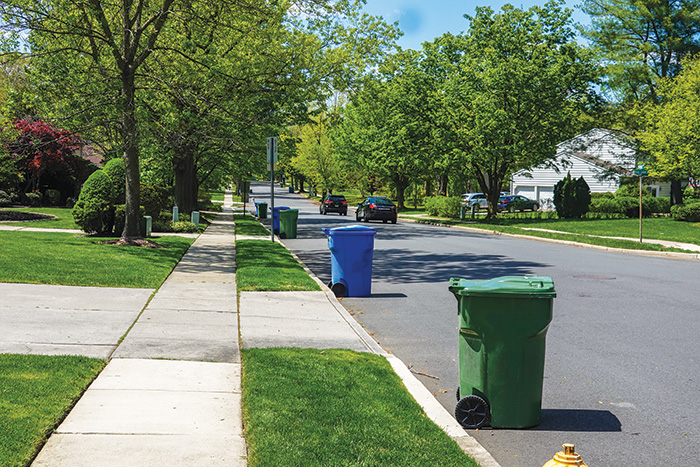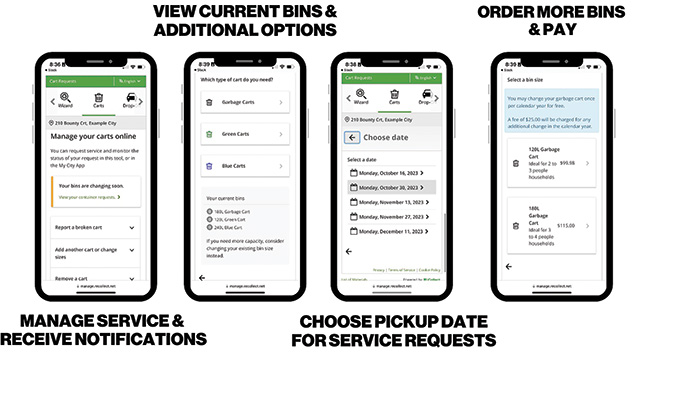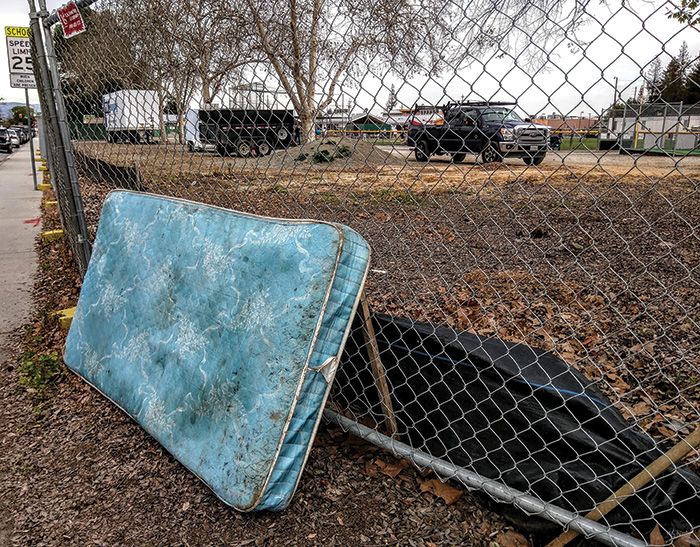Digital tools implemented today make it easy to flex for future changes in the regulatory environment.
By Tim Adkins
Maybe predicting the future is not all that hard—at least when it comes to anticipating waste management and recycling legislation. In the past few years, states have enacted bills to improve recycling, divert waste from landfills, and reduce greenhouse gasses and pollutants. Other states are watching and following suit with similar legislation. If your community is not already responding to rule changes, there is a good chance you will be facing them soon. Elsewhere, the future is already here—seeing it makes preparation easier.
As complicated as it is to enact new legislation, getting citizens to comply is its own kind of challenge. People need to know what they are being asked to do, why it is important, and how to do it correctly. That can take time, first to communicate and then for behavior change to start showing results. Cities using digital technology purpose-built for the solid waste industry are adding efficiencies today that help them prepare for tomorrow’s new rules.
Two U.S. coastal communities recently had a chance to reflect on how digital tools prepared them—and the people they serve—to change habits when new solid waste rules were rolled out. These are the stories of Sunnyvale, CA and Cambridge, MA. However, they could be the story of any community with a clear picture of what the future looks like.

A Stinky Situation in Sunnyvale, CA
With organic waste making up half of the material in California landfills and creating 20 percent of the state’s methane emissions, the state legislature passed SB 1383, which went into effect on January 1, 2022. The goal is to divert 75 percent of organic waste from landfills by 2025. The law also requires that jurisdictions conduct education and outreach to promote organics recycling.
The City of Sunnyvale did not have to scramble or invent something new in response to this legislation. A few years earlier they had identified an opportunity to communicate with customers and address recycling confusion with digital tools and an app from ReCollect. When SB 1383 went into effect, Sunnyvale residents were already familiar with their easy-to-use Collection Calendar and the ‘How to Get Rid of Anything’ app—ReCollect’s Waste Wizard.
Sunnyvale’s digital tools also provided flexibility to respond to feedback and keep residents engaged in organics recycling. The existing organics program uses a cart divided into two sections: one for garbage, and one for food waste. Some residents complained that over time the bins got stinky with food waste and they were unappealing to use. To address their concerns and keep the program on track, the city instituted a Clean Cart Replacement program. This allowed residents to get a fresh cart delivered twice a year, which meant feeling more prepared to help as California strives to meet its organics goals.
Adding the Clean Cart Replacement program to the City’s solid waste services was possible because Sunnyvale was already up and running with ReCollect digital tools. Residents knew how to look up recycling information, request bulk pickups, check for special collection days, and report missed services—all on their own time and without having to call a customer service representative. The new bin replacement service was integrated into their familiar tool.
Sunnyvale also was not waiting around for the state to come up with rules to follow. They were already working toward a zero-waste goal of 90 percent diversion from the landfill by 2030. In addition to customer education and service, digital tools are helping Sunnyvale track and meet their efficiency goals. For example, in three years of partnership with ReCollect, bulky item pickup requests increased 64 percent, while call volumes decreased, allowing customer service representatives to focus on other stinky problems.

Cambridge, MA was Not Caught Sleeping
In November 2022, mattresses and textiles joined the list of items banned from disposal or transportation in the state of Massachusetts. Cambridge was ready. The city had implemented digital tools from ReCollect for solid waste and recycling communications within a web widget. Cambridge residents already knew how to use the Collection Calendar, the Waste Sorting Game, and Get Rid of it Right—their version of ReCollect’s Waste Wizard.
Cambridge was able to comply with the state’s waste bans well in advance of when they took effect. It was back in 2019 that the city asked ReCollect to help them add the Special Collection tool that makes it easy to schedule pickups for things like discarded mattresses. Haulers currently handle about 5,000 mattress collections per year; the Special Collection tool reduced member service calls for mattress pickup by 99 percent. Residents can also use the tool to cancel, reschedule, and get information about proper handling of other non-trash items.
When the mattress disposal regulations went into effect, the community already knew how to properly dispose of their mattresses. They did not have to learn a new system, which also saved on education and outreach. To reinforce the program, whenever compliance officers find a mattress at curbside that does not have a scheduled pickup date, they add a tag asking the resident to schedule one through the website. With the Special Collection tool working well for mattress collection, Cambridge decided to use the same tool for textiles. Again, they were able to stay ahead of state legislation.

Cambridge had some valuable data they could use to plan their mattress collection program right at their fingertips. Residents use ‘Get Rid of it Right’, the Waste Wizard tool, to find out how to properly dispose of specific items. Metrics collected by the tool showed the number of people searching for ‘how to get rid of a mattress.’ With this information, the city could estimate how many mattresses they would need to plan for.
With digital tools up and running, residents are empowered to do the right thing with their recycling, trash—and lumpy mattresses. Cambridge is one city that will not be losing any sleep worrying about future legislation.
Getting Ready for Future Rule Changes
Lawmakers are focusing on statewide issues when they are writing environmental legislation. They do not always see the complexities of implementation at the community and household level. Ingrained habits take time to change, especially for an activity like trash day that happens only once a week.
Citizens want to do the right thing. They want clean communities and a sustainable future. No need to wait around for legislation: digital tools implemented today make it easy to flex for future changes in the regulatory environment. | WA
Tim Adkins leads product marketing at Routeware, Inc. and has worked in environmental services for more than 15 years. For more information about digital solutions for waste and recycling management and education, e-mail [email protected] or visit www.routeware.com.
